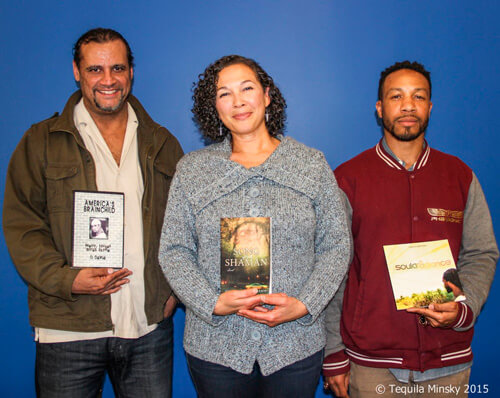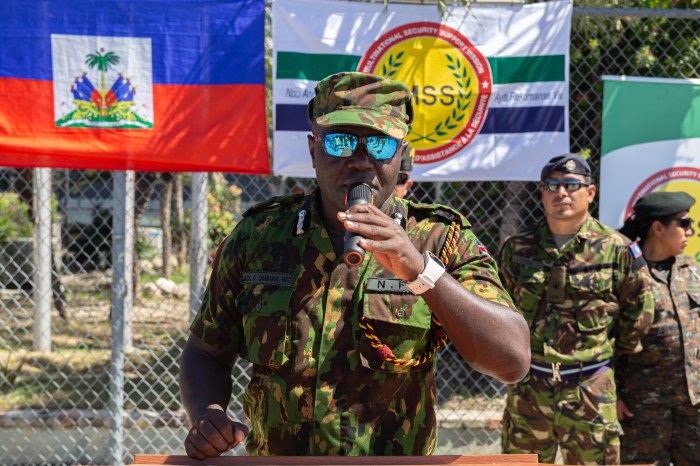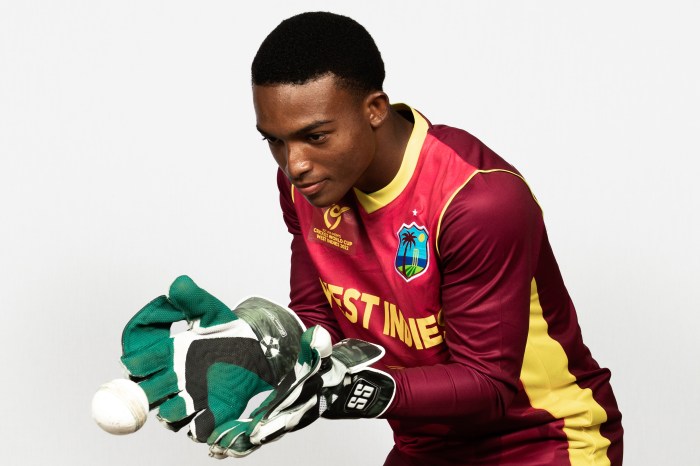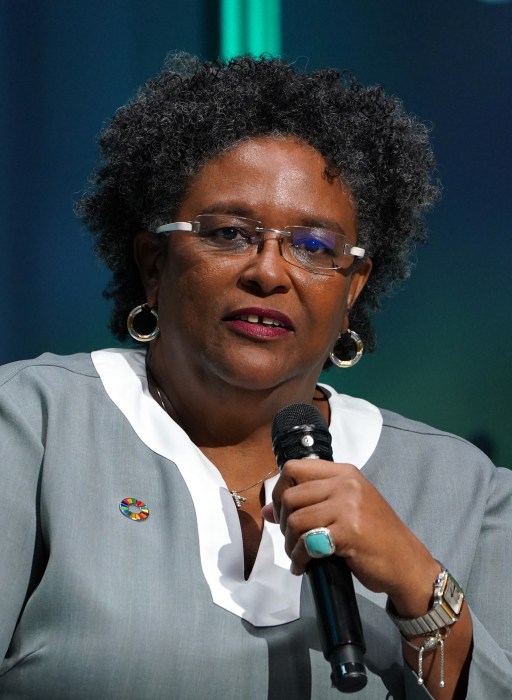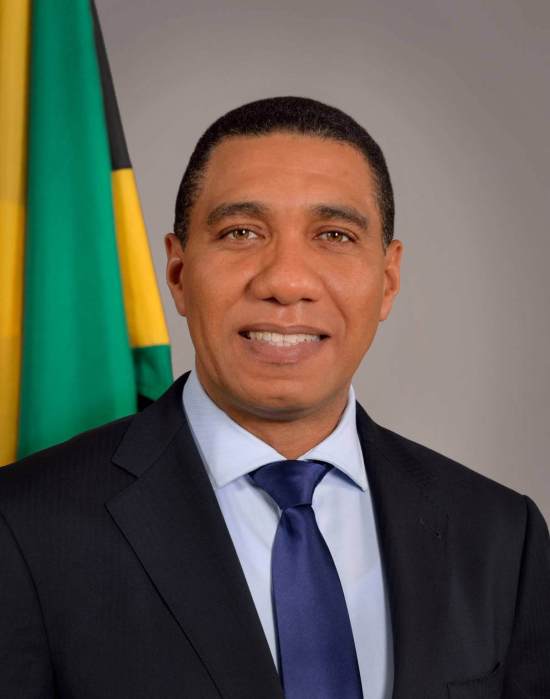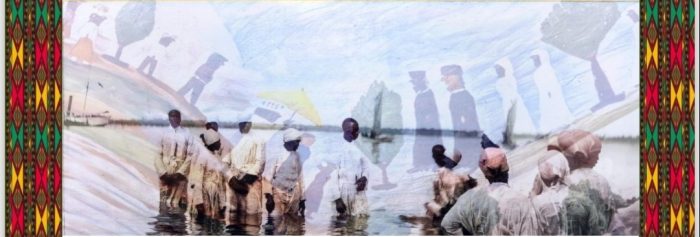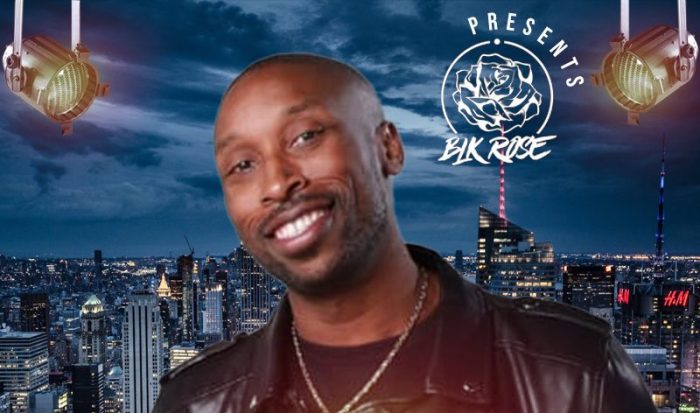I am a Boringuen. I am a West Indian. I am a Barbadian. So said poets El David Rodriguez (Puerto Rico) The Art of Word, and Negus Tehuti Adeyemi (US / Barbados) Soularadiance, and novelist Annette Vendryes Leach (US / Panama / Jamaica) Song of the Shaman at the readings and conversation in the Tellin’ Our Story series of the Caribbean Cultural Theatre.
The afternoon event entitled “Identity Now, Generation Here! Native Born Immigrant” brought these three authors of Caribbean heritage together to share their written words and thoughts on ‘When does one become an American?’
The poems and selected reading offered jumping off points for the lively discussion that followed.
Comfortably gathered in Evans Innis Library at Medgar Evers College, Jamaica, Trinidad, Dominican Republic, Honduras, Grenada and Jamaica/Panama and Guyana were “in the house.”
Along with writers, a dancer, and others interested in Caribbean culture, Medgar’s psychology and sociology students, encouraged by their professor participated during the afternoon. Sociology professor Dr. Patricia Belcom from Medgar’s Caribbean Resource Center (an event co-sponsor) sat among them.
Also present, Hon. Dr. Donna E. Hunte-Cox, Barbadian consul general of Barbados at New York consulate contributed to the conversation.
Caribbean Cultural Theatre Director E. Wayne MacDonald posed the question to the three writers, all born in the United States: At what point do you make the choice to be an American?
Poet Negus Tehuti Adeyemi said he had grown up immersed in Barbadian culture and traveled back and forth and was completely Barbadian.
Annette Vendryes Leach revealed that her parents wanted to adopt American culture for economic reasons. When at the age of nine, the family moved to Jamaica, she initially was not accepted; she was the outsider. In school in the United States, she worked very hard to get rid of her accent so she wouldn’t get beat up. During the discussion she said that to live in the United States you learn to negotiate your way, even when you’re holding on to your culture.
“I don’t like the word immigrant, I prefer migrant,” said poet El David Rodriguez, who verbally shuns an identity of “being an American” and said, “We don’t like being confined by borders. (Of course, as a Puerto Rican his family, even on the island are American.)
It was noted during the conversation that one is “implicated” in being an American, just by living here.
How do you hold on to culture? What is ‘Caribbean’ versus individual island identities? When do you stop being an outsider? (Never, was almost a consensus response.) How much does ‘being black’ factor into outsiderness? (A lot.) How helpful to life and truthful is what you learn in school? Discussed were issues of who is writing history and setting values.
While the dynamic conversation frequently branched out and veered, MacDonald did a masterful job of keeping the topic at hand.
“This session and series has been tremendously rewarding.” said MacDonald. “It allowed regular Caribbean people to engage salient issues without political pressure or bias. The literature is so powerful.”
Coming up are more exciting programs.
On April 29 at York College, in a program entitled “Caribbean Classics-Legacy and the Search for Voice,” writers will converse on the works of Commonwealth Caribbean’s pioneering playwrights: St. Lucia’s Derek Walcott, Barbados’ Kamau, T&T’s Earl Lovelace and Jamaican Trevor Rhone.
Back to Medgar Evers College on June 6 will be “Word,” the Caribbean Book Fest celebrating a whole day of readings, storytelling, open mike, concert readings and performances. Twenty-four writers from 12 countries will be participating. Writers for young readers–toddlers to teens are on the program. The event will be in the Medgar’s Amphitheatre from 1:00 p.m. – 8:00 p.m.
Sunday’s particular program, “Identity Now” was scheduled as part of “Immigrant Week.”



